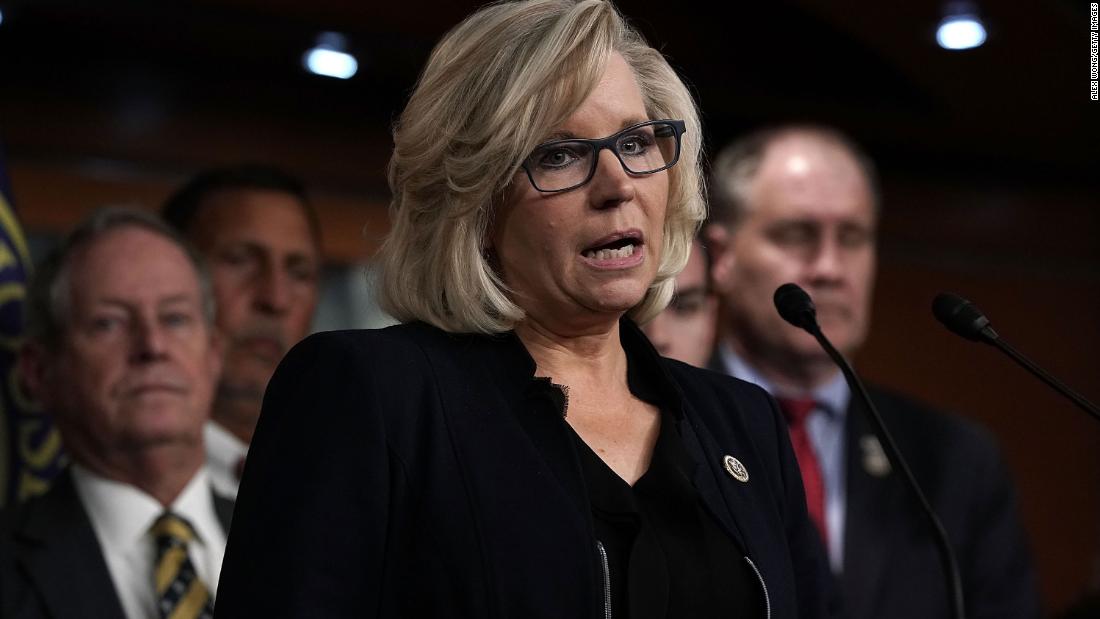
On Monday, at a Republican retreat in Orlando, Florida, Cheney took that criticism a step further as she discussed the 2024 Republican field.
“I think we have a huge number of interesting candidates, but I think that we’re going to be in a good position to be able to take the White House,” she told the New York Post. “I do think that some of our candidates who led the charge, particularly the senators who led the unconstitutional charge, not to certify the election, you know, in my view, that’s disqualifying.”
She added: “I think that adherence to the Constitution, adherence to your oath has got to be at the top of the list. So, I think, you know that certainly will be a factor that I’m looking at and I think a number of voters will be looking at as they decide about ’24.”
Which, well, bold! Cheney is making clear that she believes that anyone who voted for — or supported — the objections to the Electoral College count early this year simply cannot be seriously considered as future leaders of the party.
And that covers a WHOLE lot of people. After all, almost 150 Republicans — 139 House Members and eight senators — voted to object to the Electoral College certification in Pennsylvania, Arizona or both. And since Cheney specifically mentioned the senators who voted to object to the results, here they are:
* Tommy Tuberville (Alabama)
* Rick Scott (Florida)
* Roger Marshall (Kansas)
* John Kennedy (Louisiana)
* Cindy Hyde-Smith (Mississippi)
* Josh Hawley (Missouri)
* Ted Cruz (Texas)
* Cynthia Lummis (Wyoming)
Three of those eight quite clearly have 2024 ambitions: Scott, Hawley and Cruz. In fact, their opposition to the Electoral College count was almost certainly fueled by their presidential ambitions — knowing that Trump, who continues to insist sans proof that the election was stolen from him, is still the most revered figure (by a lot) within the GOP. The easiest path to the 2024 nomination, then, is to court Trump base voters. And the way to do that is to keep saying there were major questions about the 2020 election — even though that is simply false. (In a Quinnipiac University poll in February, 76% of self-identified Republicans agreed with the statement that there was “widespread fraud in the 2020 election.”)
What that proves is that Cheney is in the minority, again, within her party. While she continues to push the envelope on what January 6 meant — and how it should be a defining moment in the history of the GOP — others like House Minority Leader Kevin McCarthy (California) are actively trying to rewrite the history of that day in a way more favorable to Trump.
“What I talked to President Trump about, I was the first person to contact him when the riots was going on,” McCarthy said on Sunday. “He didn’t see it. What he ended the call was saying — telling me, he’ll put something out to make sure to stop this. And that’s what he did, he put a video out later.” (Very little of that statement is accurate.)
Being out of step with her party — although in step with the truth — has already created major political problems for Cheney. Trump has pledged to beat her in the 2022 Republican primary for her House seat and several aspiring candidates have signaled they will run.
And in an interview with Politico on Monday, McCarthy seemed to issue a not-so-veiled threat to Cheney, who is the third-ranking Republican in House leadership. “There’s a responsibility, if you’re gonna be in leadership, leaders eat last,” McCarthy said. “And when leaders try to go out, and not work as one team, it creates difficulties.” When asked whether Cheney was still a “good fit” for the leadership team, McCarthy said, “That’s a question for the conference,” Punchbowl News’ Jake Sherman reported Tuesday.
Add it all up and what’s clear is this: Cheney is on an island in her party when it comes to her views on what happened on January 6 and what the consequence should be for those who aided and abetted the riot. Which means Trumpism is, uh, trumping truth in the latest version of the Republican Party.



